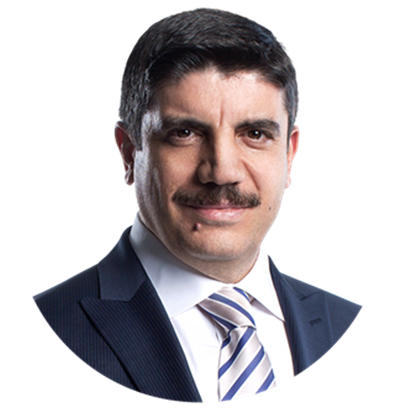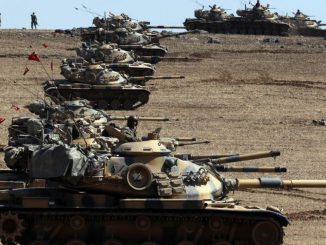Turkey looks forward to working more closely with our African friends and allies in a range of areas: Erdogan
“Over the next days, Turkey’s political and business leaders will embark on a historic visit to Uganda, Kenya and Somalia. We will seek to promote closer cooperation with our regional allies, develop solutions to shared challenges and explore mutually beneficial opportunities,” said Turkish President Recep Tayyip Erdogan in an article in Al-Jazeera.
President also said on Wednesday that Africa’s priorities were Turkey’s as well. Erdogan spoke at the Turkey-Africa Economic and Business Forum in Istanbul, which highlights Turkey’s strategy to enhance bilateral trade with the African continent, reported Anadolu Agency.
“We share a common fate. We consider the priority of the African continent as our priority. There is a nice African proverb that says one day’s rain cannot get deep into the soil. We would like to remain friends forever,” he said.
First an observer country (2005) then a strategic partner (2008) of the African Union, Turkey has also been accepted as a non-regional member of the African Development Bank (2008).
The Turkish president stressed that the Western world was still furthering its colonial agenda by using globalization.
“In the name of globalization, one growth model has been dictated to different countries,” he said. “If you want to grow your economy, you need to find the IMF, the World Bank or an interest rate hike. […] You must obey the definition of democracy. In order to be part of the global system, you have to obey the current system unconditionally.”
“The culture of our African brothers is not taken into consideration. The contemporary globalization is a new form of colonialism, of modern slavery,” Erdogan added.
Erdogan warns African nations about FETO
The Turkish president also stressed terrorism’s role in damaging economic growth and asked African nations to support his country in its fight against the Fetullah Terrorist Organization’s (FETO).
“The international fight against terrorism needs international solidarity, otherwise we will fail,” he said.
During the July 15 coup attempt, 246 people were martyred and 2,194 others injured, leading to a nationwide probe in Turkey to eliminate Fetullah Terrorist Organization (FETO) sleeper cells which had infiltrated state institutions such as the judiciary and the army.
Fethullah Gulen, who has lived in Pennsylvania since 1999, is accused of being the FETO ringleader and mastermind behind the coup attempt.
The president said that Turkey’s Ministry of Education had started taking over schools related to FETO in many countries, and asked African leaders to cooperate with Turkey on the issue.
“This organization is very active on the continent. This terrorist organization is in 170 countries. The African continent is abused by this FETO organization. […] It is my duty to warn you,” he said.
Erdogan said that Turkey would seek to increase its diplomatic representations on the continent, from the current 39.
“We are going to establish an embassy in every country of the African continent,” he said. “Turkey’s foreign direct investments in the continent has reached $3.9 billion. The trade volume between Turkey and the continent increased to $17.5 billion in 2015 from $7 billion in 2005.”
Erdogan also said that Turkish investors have shown interest in the continent in recent years.
“If you want to go fast, you go alone,” he said. “If you want to go far, we will go together, hand in hand, shoulder to shoulder and side by side,” he concluded.
International business leaders met in Istanbul on Wednesday at the two-day Turkey-Africa Economic and Business Forum.
The forum, jointly organized by the Turkish Ministry of Economy, the African Union Commission, the Foreign Economic Relations Board (DEIK) and the Turkish Exporters Assembly (TIM), aims to provide a platform for the business circles of Turkey and African countries to create a long-lasting cooperation, according to the forum’s official webpage.
Turkey-Africa business forum vows to boost trade ties
Construction, food, healthcare and energy are some sectors where cooperation can be enhanced between Turkey and African countries, head of Turkey’s Foreign Economic Relations Board (DEIK) said Wednesday.
Speaking at the Turkey-Africa Business and Economic Forum in Istanbul, Omer Cihad Vardan highlighted the wide range of opportunities available on both sides.
“We see that there are hundreds of projects that we can undertake jointly as we get to know each other’s sources. Construction services, food, healthcare and energy sectors are some of the areas that we can make investments in,” Vardan said.
There are 134 business councils from around the world linked to the DEIK, 34 of which operate with African nations to develop businesses there, he said.
“Now, we know our African friends better, and they know us better as well. We understand better our countries’ needs and how to meet these needs. We are doing our best to further relations between Turkey and Africa,” he added.
Solomon Afework, president of the Pan-African Chamber of Commerce and Industry, said: “Africa, the second-most populated continent of the world, is a real gateway to different areas with its very ideal geographic location.
“The African governments believe that the private sector is an engine of the economy and they are constantly improving the legal framework to support the sector.
“Turkish trade and investments are growing rapidly in Africa due to the continent’s fast economic growth… My message to the Turkish business community is that Africa is ready to business.”
Anthony Mothae Maruping, economic affairs commissioner at the African Union Commission, emphasized the role of Istanbul in acting as a bridge with African countries.
He said Africa wanted a more diversified and, therefore, more resilient economies. “This requires a transformative growth. Turkey has certainly been doing just that for years,” Maruping said.
“Africa and Turkey have developed a win-win strategic partnership that creates a framework for cooperation at various levels and on several fronts. [Both sides should] share experiences and exchange ideas. Make Turkey-Africa partnership vibrant. Nurture it,” he added.
Turkey’s efforts in Africa
Since 2002, the government of Turkey has been working hard to help African nations to discover their potential and take steps in the right direction.
In an effort to reinvigorate our long-neglected ties with the continent, Turkey in 2005 launched an African initiative to cooperate more closely with our friends and allies in the region.
The Turkish Cooperation and Coordination Agency, or TIKA, remains active across the continent and implements hundreds of humanitarian and development projects to provide better healthcare, promote agriculture, protect the environment and facilitate commerce.
Meanwhile, more than 4,500 African students continue their education in Turkey’s prestigious universities on government and NGO scholarships. What sets the Turkish development and humanitarian aid model is our focus on mutual respect.
Turkey declared enemy of Al-Qaeda affiliate
Ahmed Umar Abu Ubaidah released a 45-minute audio speech on July 12, his first communique since being appointed head of the al-Qaeda affiliate “Al-Shabab” following his predecessor’s death in a U.S. drone strike. Speaking in Somali, Abu Ubaidah said: “The nation of Turkey is the enemy of our nation. Our economy is in turmoil because of the ‘interference’ by Turkey in our affairs; they have control of [our] economy and their actions will leave us in poverty.”
The speech comes a month after Turkish leader, President Recep Tayyip Erdogan, opened a large embassy in war-torn Somalia during an African tour.
In March this year, al-Shabaab militants opened fire on vehicles carrying doctors, killing two Turkish and three Somali medics.
The day before Erdogan visited Somalia in June, the militants blew up a vehicle near a hotel where Turkish delegates were meeting to finalize details of the president’s visit; two people were killed.
In 2013 al-Shabaab militants drove a vehicle loaded with explosives into a business premises housing the Turkish embassy staff; the attack – which was claimed by the rebel group – left three people dead.
Turkey’s role in Somalia
Somalia which has been home to the world’s worst humanitarian crisis since civil war broke out in the early 1990’s has received little help from world nations, though Turkey, in 2011, donated $350 million in humanitarian assistance.
Turkey’s involvement in Somalia started in 2011 when it sent emergency humanitarian aid following deaths caused by drought and famine in the country.
Since then, Turkey has played an intensive role in taking Somalia out of isolation by modernizing the region and rebuilding the country’s main airport in Mogadishu.
Turkey to Open a Military Training Base in Somalia
More details about Turkey’s first military facility in Somalia emerged on October 13 with the construction firm behind the project confirming the base will be able to train hundreds of local soldiers, according to Anadolu Agency.Istanbul Mogadishu General Construction Company Director Ebubekir Sahin told Anadolu Agency the $50-million base will open near the Somali capital Mogadishu in January 2017.
Turkey’s bilateral relations with African nations
In recent years, Turkey’s bilateral relations with African nations have improved. A record number of official visits by Turkish and African leaders helped to build stronger ties with the continent, promote partnerships of equals and serve the interests of both parties.
Since assuming the Turkish presidency in August 2014, President Erdogan visited nine African countries and hosted a large number of African leaders on the occasion of bilateral visits and international summits.
The Turkish cooperation with Africa has not been limited to official visits. Over the past decade, Turkey signed a number of treaties and launched joint projects across the continent to challenge the traditional hierarchy between the exploiter and the exploited.



